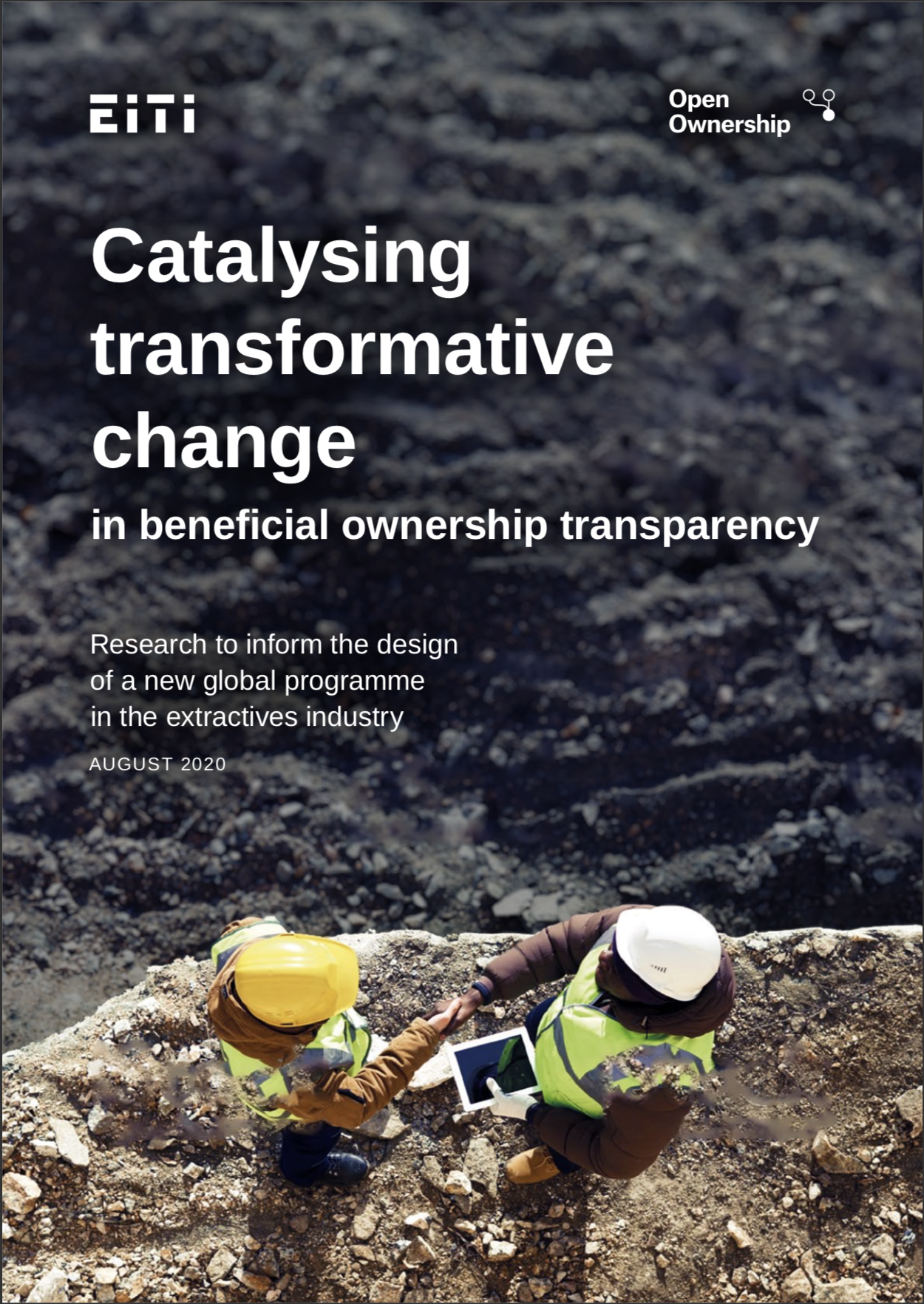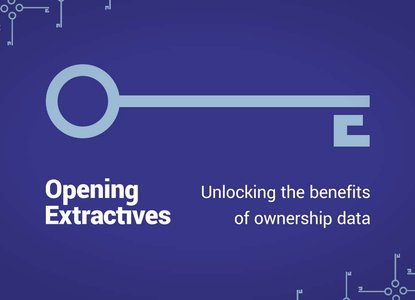Making beneficial ownership transparency a reality in oil, gas and mining

Beneficial ownership transparency - knowing who ultimately controls and benefits from a company - is critical to fighting corruption and preventing illicit financial flows. Making beneficial ownership transparency the norm in the extractives sector can reduce the potential for corrupt activity in a sector that often yields significant revenues. New research has shown that there is both high demand for technical assistance to achieve beneficial ownership transparency, and a need for tailored support to address the complex dynamics that give rise to reform.
The Extractive Industries Transparency Initiative (EITI) and Open Ownership (OO) are partnering to develop and deliver a new global programme, Opening Extractives, to catalyse transformative change in beneficial ownership transparency in the extractives industry. To inform the design of this programme, we interviewed over 20 stakeholders including in-country practitioners and international beneficial ownership transparency experts.
A uniquely complex reform agenda
While the case for beneficial ownership transparency is strong, stakeholders perceive the issue to be uniquely complex. The research shows that there is no single path to institutional reform.
Our research identifies three aspects of the reform process that are both critical to the programme design and substantially complex. First, jurisdictional complexity which involves overlapping and unclear mandates between a large number of government agencies. Second, the technical challenges of setting up systems, and verifying and publishing data in a way that is accessible. Third, overcoming the formidable barriers that revolve around power and political will, especially when there are vested interests in maintaining opacity in a lucrative sector such as extractives.
Given the interdependence of these three aspects for successful reform, the programme will seek to carry out specific interventions that will directly impact one or more of these areas. For example, the programme will draw on evidence and good case practices to address technical knowledge gaps and empower reformers.
Political will is multi-faceted
While these factors affect the implementation and impact of beneficial ownership transparency, political will is critical for the programme’s success. Identifying the circumstances and elements that contribute to political will is therefore critical for the success of the programme and a key factor in determining a short list of countries in which to engage. The research showed that political will is multifaceted and varies across countries. Components of political will identified during the research included support from legislative and executive branches of government, as well as dedicated champions and coalitions. A clear government commitment, as well as having a single lead agency and equipping it with a clear mandate and responsibility for beneficial ownership transparency will substantially increase the chances of successful implementation. Other components include political stability, regulatory effectiveness and rule of law, which are also fundamental to achieving sustainable beneficial ownership policies, especially when changes in government can disrupt ongoing reforms. Ensuring political will therefore require overcoming both technical and political barriers. A lack of understanding at a technical level, for example, may cause potential supporters to oppose reforms.
Informing programme design
Our research has uncovered a scenario of high demand for technical assistance along with dynamic and complex challenges. As such, the Opening Extractives programme will be adaptive and work with national stakeholders to develop activities that respond to their contexts and needs. Despite the COVID-19 pandemic, which has caused delays while also providing new opportunities for engagement, the research underscored the timeliness and relevance of the Opening Extractives programme.
The research findings recommend that the programme conducts ongoing in-country assessments of political will that will help mitigate the risk of failure by commencing with small interventions in a larger number of countries. The findings and impact of these initial interventions then inform decisions about scaling up interventions in a more limited number of countries.
In these countries, Opening Extractives will be pushing into new territory for transparency and will need to create a compelling narrative to strengthen domestic support for beneficial ownership reform. Monitoring and learning frameworks will be built into these initial activities to test our assumptions and criteria for success, as well as to assess political will and adapt our assumptions and delivery accordingly. The recommended adaptive programme approach will be responsive and flexible to the needs and contexts of implementing countries by providing tailor made tools, resources and guidance to assist with overcoming context and country specific challenges as they emerge.
To respond to the need for better understanding of beneficial ownership transparency and clear explanations about the benefits of reform, the programme will measure and track impact in different countries. It will also provide tailored communications resources and capacity-building activities in select countries to build legitimacy for reform. As the programme progresses, we will share lessons and resources internationally to support broader advancement of beneficial ownership transparency beyond the programme’s target countries. Through this, the programme aims to leverage beneficial ownership transparency in the extractives sector as a springboard for wider disclosures.
The EITI and OO team is working with the BHP Foundation on the design of the programme and is also engaging with other partners to support certain programmatic themes and specific regions.

Related articles and publications
Publication type
Blog post
Topics
Extractives,
Opening Extractives
